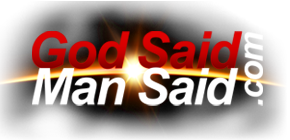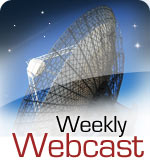Breast-Feeding
Starting in the late 1940’s breast-feeding began to fall out of favor nationally. By the 1950’s infant formula gained widespread endorsement from the pediatric community and breast feeding for millions of children and mothers became a thing of the past.| Audio Options: | MP3 |
Breast-Feeding
Most of the time the effects of rebellion against the word of God are seldom plumbed. Satan, the master of evil, weaves a spider's web with each strand methodically connected for the overall success of wickedness. The Satanic effort to discredit God's Word which is the only source of truth and goodness is incessent. He is the diabolic master of weaving the network of evil. What appear to be unrelated benign strands turns out to be weapons of orchestrated catastrophic destruction. Case in point is the subject of breast feeding. At the end of this God Said-Man Said, I will clarify this opening statement.
I am compelled to preface this article on the subject of breast-feeding with this note to mothers who for reasons such as adoption, various medications harmful to the child via the mother's milk, or mothers who are HIV positive, etc., that God is more than able to supply your child's need. Be sure of this one thing, God is fully aware of your inability to fulfill His directive concerning the matter for breast-feeding. Pray over your baby's formula and food before feeding your child and you can be confident that God will supply that which is lacking. Let not your heart be troubled.
GOD SAID by his act of biological design that infants should be breast-fed. Genesis, Chapter 49, Verse 25:
Even by the God of thy father, who shall help thee; and by the Almighty, who shall bless thee with blessings of heaven above, blessings of the deep that lieth under, blessings of the breasts, and of the womb:
MAN SAID that baby formula concocted by science was equal to or even superior to mother's breast milk. Starting in the late 1940's breast-feeding began to fall out of favor nationally. By the 1950's infant formula gained widespread endorsement from the pediatric community and breast feeding for millions of children and mothers became a thing of the past.
Now THE RECORD. The handiwork of God is beyond comprehension. Have you ever heard of the rooting reflex? What a miracle of design! If a mother simply rubs the newborn's cheek or rubs the nipple across the child's lips, the infant will automatically open his mouth to nurse. Imagine that this absolutely essential process called the rooting reflex has been instinctively built in by God the creator.
Consider this about breast-feeding: It is estimated that four of every 1,000 infants die because they are not breast fed. At just a 1% American birth rate that computes to approximately 12,000 infant deaths a year. For simple calculating lets assume 10,000 deaths a year between 1950 and the year 2000. That computes to 500,000 infant deaths or over seven times the number of American lives that were lost in the Vietnam War simply due to the lack of breast-feeding. Where are the protesters?
Fewer than half of American babies are fed exclusively breast milk during their initial stay at the hospital. When the infants reach the age of six months only 19% receive breast milk and at the ripe old age of one year, only 2%. Now compare that with the global average of children being weaned from the breast at 4.2 years. The American Academy of Pediatrics now weighs in with this recommendation that for the baby's optimal health, a mother should breast-feed for at least a full year. The benefits of breast-feeding for mother and child are staggering. That list is long and ever-increasing.
A growing body of evidence now shows that DHA, which is a fatty acid, is the essential structural ingredient of breast milk. DHA is lacking in infant formula due to a ban by the FDA. The following is a quote from Dr. William C. Douglass on the subject of DHA:
Breast-fed babies have an IQ of six to 10 points higher than formula-fed babies. Scientists and nutritional experts attribute this to DHA, an omega-3 fatty acid that's an essential structural component of the brain and retina. It's found naturally in mother's milk. In case it will impress you, the World Health Organization and the Food and Agricultural Organization of the United Nations also endorse the addition of DHA to infant formula.
During the last trimester of a pregnancy is when the mother transfers to her baby much of the DHA needed for the development of his or her brain and nervous system. The DHA content of the mother's diet reflects in the amount of DHA passed on to the baby. If the baby is not breast-fed at all, it also receives no DHA after birth and is shortchanged in neurological development, thus impairing mental and visual acuity. DHA levels of premature infants are especially low, since they miss much of that last trimester and when born, haven't developed the sucking mechanism—so they are usually bottle-fed. It's a wonder they live at all, and it's a crime they aren't getting DHA in their bottle from birth.
The University of Rochester researched brain stem development in infants born prematurly. Seventeen of the infants were fed breast milk and 20 were fed formula. Commenting on the research Dr. S. Amin had this to report, "Our findings suggest that infants fed breast milk have faster brain stem maturation, compared with infants fed formula."
The Lancet reported on research conducted on 216 premature children by the Institute of Child Health of London. Their findings showed that children who were breast fed (now aged 13-16) had lower blood pressure than those who were formula fed.
According to the American Journal of Clinical Nutrition, infants who were breast fed have superior eyesight to those who were not.
Breast fed children are 50% less likely to get an ear infection than those who are not. Science now knows that breast milk slows down the growth of harmful bacteria in the intestines. Breast milk inhibits the growth of bacteria in the lungs, mouth and nose as well.
Research shows that exclusive breast-feeding reduced respiratory infections for the infant's first four months of life. A 1998 study declares that children breast-fed for 6 months have shorter durations of respiratory illness such as pneumonia, colds and the flu.
I found the following excerpt in an article written by Dr. R. D. Russell especially exciting. It reads as follows:
The cells in the mother's milk not only attack bacteria that may be harmful to the baby, but apparently they have the ability to produce antibodies that destroy bacteria and viruses as well. Evidently the infant who is exposed to infections and nurses from its mother, also produces changes in the mother's breast. Within hours the next milk contains antibodies and immunoglobins to protect the baby before the infant exhibits visible symptoms.
An article in the publication called Mothering points out that mother's milk has 400 nutrients that cannot be duplicated in the lab. Research suggests that breast-feeding reduces the risk of sudden infant death syndrome, childhood cancer, diarrheal diseases, lower respiratory illness, ear infections, bacterial infections, diabetes, infant botulism, Crohn's disease, ulcerative colitis and cavities.
In May of 2001 the Journal of the American Medical Association cited two studies which report that breast-feeding not only boosts babies' immune systems and brain power but may also reduce the risk of being overweight. Harvard Medical School, in a study of 15,000 babies, found that newborns given formula were 20% more likely to be overweight in adolescence versus their breast-fed counterparts.
Imagine the following lead paragraph was found in an article in Discover Magazine titled "Got Cancer." It reads as follows:
When Cathatrina Svanborg and her research associates began mixing mothers' milk and cancer cells together seven years ago, she wasn't looking for a cure for cancer; she was after a way to fight germs. Nevertheless, the physician and immunologist at Lund University in Sweden has discovered that a previously taken-for-granted component of ordinary human breast milk compels cancer cells—every type of cancer cell tested—to die.
The American Academy of Pediatrics makes the following recommendations:
- Human milk is the preferred feeding for virtually all infants, including premature and sick newborns.
- Breast-feeding should begin as soon as possible after birth, usually within the first hour.
- Newborns should be nursed whenever they show signs of hunger—increased alertness or activity, mouthing or rooting.
- No supplements (water, glucose water, formula, etc.) should be given to breast-feeding newborns unless for medical reasons. Pacifiers should be avoided.
- Breast-feeding provides ideal nutrition. It is all an infant needs for optimal growth and development for the first six months.
Breast-feeding also delivers mighty benefits to the mother. Nursing moms show a reduced risk of premenopausal breast cancer, ovarian cancer and osteoporosis.
Web MD reviewed research that was recently presented to a Pediatric Academic Societies Annual Meeting. It is now known that women who breast-feed, after they're done lactating, have stronger bones and demonstrate lower incidence of osteoporosis than amongst non-breast-feeders and the same results were posted in teenage mothers.
Reports of the benefits of breast-feeding keep pouring in. It is safe to say that science will never recognize all of the benefits.
Finally, on the economic front, an article in the Sept./Oct. 1999 issue of Consumer's Digest stated that breast-feeding saves $331 to $475 per infant in the first year in medical costs alone. Now you can add another $1,000 in formula costs and you can see that in addition to marvelous benefits to the infant and the mother, the breast-fed household also experiences serious financial rewards.
GOD SAID to breast-feed your children.
MAN SAID, "Hogwash! Science has a better way."
Now you have THE RECORD.
In the beginning of this article I declared that Satan's desire to discredit breast-feeding is part of his meticulously engineered plan to destroy the benefits of God's Word in the lives of men. He is the diabolic master weaver of the network of evil...the spider's web. What appear to be unrelated benign strands turn out to be weapons of orchestrated catastrophic destruction. Nothing is left to chance in his web of deception. Consider how closely connected these supposed unrelated strands of the spider's web become in the Satanic effort to destroy the God designed home:
1. The ultimate purpose of this section of Satan's Web is to destroy the wholesome family structure.
2. In the late 1940's, right after WorldWar II, a deprived postwar population dived headlong into consumptionism. The line, "Keeping up with the Joneses" is coined as the American family's quest becomes two cars, a boat and a vacation at the beach.
3. The new spirit of consumptionism requires a two job-two income house. Mom went off to work.
4. Breast-feeding had to be eliminated to facilitate the new two-income home...thus enters baby formula...the new "wonder" of science.
5. A huge population of women in the workforce interacting with other women's husbands leads to a huge increase in adultery, guilt and divorce.
6. Broken homes create displaced and emotionally unbalanced children.
7. Women's careers are promoted, as the honorable occupation of wife, mother and homemaker is demeaned.
8. The need for abortion to protect careers and eliminate unwanted and illegitimate infants.
9. Large increases in suicide and murder take place.
10. Sexually transmitted diseases become rampant.
11. Children are born with lower IQ's therefore less capable to succeed in life.
12. Damage is done to women's overall health and psychological well-being.
The list obviously goes on and on. Satan discredits breast-feeding which appeared to be an unrelated benign strand in his web but now you have THE RECORD.
References:
King James Bible
Kasoff, J. L., "The Joys of Breast-feeding," New Parent Magazine, Winter/Spring 2000.
Baumslag, N. B., Michels, D. L., "Milk, Money and Madness": The Culture and Politics of Breast-feeding, 1995.
"Breast-feeding: Investing in America's Future," Breast-feeding Promotion Committee Report to the California Dept. of Health Services Primary Care and Family Health, Breast-feeding Trends and Data Sources, 1996.
Quick, B., "Breast Milk: It Does A Body Good," Ms. Magazine Jan./Feb. 1997.
Lathrop, D. W., "What Nursing Can and Can't Do," Parenting Magazine, September 1999.
Douglass W. C., "A Substance Found in Breast Milk Helps Depression, Alzheimer's," Second Opinion, March 2001.
"Breast Milk," Better Nutrition Magazine, December 2000.
"Breast-feeding Is Still Best," Better Nutrition Magazine, May 2001.
Russell, R. D., "Design In Infant Nutrition," Institute for Creation Research publication Impact, Jan. 1995.
Marcus, M. B., US News & World Report, May 28, 2001
Radetsky, P., "Got Cancer Killers?," Discover Magazine, June 1999.
A. McTiernan and D. B. Thomas, "Evidence Effect of Lactation of Risk of Breast Cancer in Young Women: Results from a Case Control Study," Am J Epidemiol 124 (1986): 353-358.
K. A. Rosenblatt and D. B. Thomas, "Lactation and the Risk of Epithelial Ovarian Cancer Risk," Int J Epid 22 (1993): 192-197.
P. J. Feldblum, J. Zhang, L. E. Rich, J. A. Fortney, and R. V. Talmage, "Lactation History and Bone Mineral Density among Perimenopausal Women," Epidemiol 3 (1992): 527-531.
Braslavsky, A., "Breast-feeding's Benefits Extend Beyond Nutrition," Web MD Medical News, May 14, 2001.
"Breast-feeding Saves," Consumer's Digest, Sept./Oct. 1999.
Additional Audios
- The 6,000s (Part 4: Adam & Eve Found; They Are Young!)
- Meditation Rebuilds Grey Matter in 8 Weeks (My Soul is Continually in My Hand)
- Fasting and Prayer--The Power that Breaks the Yoke
- The Worms from Hell
- The Truth Remains True — Pigs — Lotís Wife — Flush It
- Why the Blood of Jesus?
- Dead Men Talking About Life After Death
- Heaven--Looking for Proof? (Let There Be No Doubt!)
- Wicked Thoughts and How to Deal with Them
- Sodom and Gomorrah
- Complaining Turns Brain to Mush
Power Verse
Malachi 3:16 (KJV)
Then they that feared the Lord spake often one to another: and the Lord hearkened, and heard it, and a book of rememberance was written before him for them that feared the Lord, and that thought upon his name.







